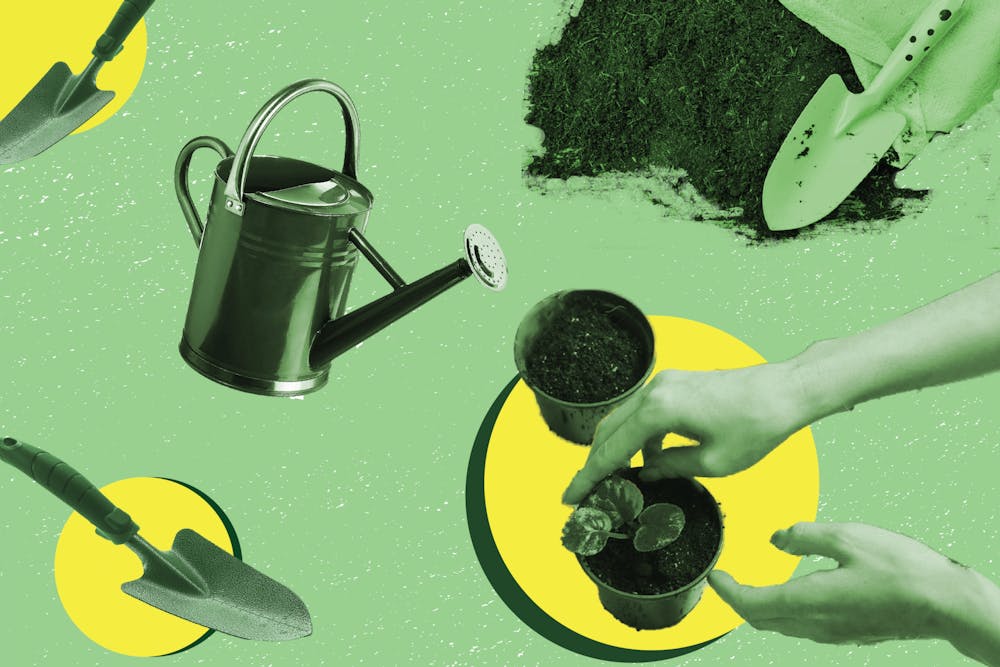Food is political—despite being a basic necessity for life, access to it is deeply inequitable.
The term “food desert” is frequently used to describe areas where there's limited access to fresh and nutritious foods. But according to activist and community organizer Karen Washington, the word “food apartheid” more accurately—and comprehensively—describes the social forces at play when talking about food accessibility. Washington explains that the term “food deserts” relegates the places it refers to as barren, desolate landscapes, rather than potential locations of vibrant transformation and growth. “Food desert” is also an outsider term, a word placed on a community by others, not used by the community members themselves.
The term also carries a deeper implication: Lack of food accessibility is a natural phenomenon, something that occurs outside the influence of capitalism, white supremacy, and colonialism. “Food apartheid,” in contrast, acknowledges the intentionality that underlies food access. Washington stresses that looking at the whole food system, including race, class, education, economics, and geography, is crucial in understanding how food access is a systemic issue.

The issue of food insecurity is racialized and entrenched in socioeconomic disparities, and these problems have only magnified during the pandemic. NPR estimates that nearly one in four households have experienced food insecurity this year, and nearly 35 million Americans were either “unable to acquire enough food to meet their needs, or uncertain of where their next meal might come from.” In addition to facing disproportionate rates of food insecurity, Black neighborhoods and other neighborhoods with a majority of people of color have less access to supermarkets that offer good–quality, affordable fresh food. Produce sold in areas with food apartheids also cost significantly more than in suburban markets.
Educator and food justice advocate Malik Yakini, however, explains that the expression “food desert” presupposes that the answer to the lack of fresh and nutritious food is merely adding more grocery stores, without seeking to change the deeply rooted social problems, such as the subsidized food system, that create these disparities.
Food inequality can’t be fully addressed through 'band–aid' policies like more grocery stores; it requires community self–determination—”the ability to determine their own health and futures.”
This is one of the deeply held values of Urban Tree Connection (UTC), a West Philadelphia–based community organization seeking to build a neighborhood–rooted food and land system. In addition to producing sustainably grown produce on their three–quarter–acre vegetable farm, UTC also organizes community–run farm stands and offers various education and mentorship programs for youth.
In a conversation with Noelle Warford, the executive director of UTC, she discussed how community gardens can serve as spots of social, and personal, transformation. Shifting from what Warford calls an “extractive to regenerative” economy requires us to relate to each other in a different way, where the competition and self–interest that is bred under racialized capitalism is changed into a more collective spirit. Warford reflects that this necessitates a process of “essentially becoming different types of people.”
Warford also underscores UTC’s commitment to community and mutual aid. What differentiates UTC from a traditional nonprofit is that they “build with community members who have skin in the game … who see the value in having a community–led food system and want to be a part of building that.” This mutual relationship in their food access work is important, Warford explains, because “otherwise, [UTC would] just reproduce the same model of a nonprofit that is transactional in the community, where people feel like they come and consume that service for generations, and it doesn't actually transform the material conditions of the neighborhood itself.”

Lila Bhide, coordinator of the Penn Food and Wellness Collaborative, also organizes for food justice. Food insecurity at Penn, and on college campuses in general, has long existed. “Although the research is new, the problem is old,” Bhide says. The Penn Food and Wellness Collaborative is a new initiative on campus, situated in Penn Park Farm, that prioritizes food access and education. The organization sends their sustainably grown produce to a food pantry at the Hospital of the University of Pennsylvania, and offers various educational programs, events, volunteering and internship opportunities, and workshops.
Bhide says that working on the farm can provide opportunities for both communal and personal growth. “I think [it’s] really great for bringing people together, and introducing people who might not have ever met ... I think [it] also empowers people to have the skills to grow their own food to reconnect with lands in a positive way."
However, Bhide also acknowledges that addressing food insecurity is much more complex. Community gardens alone may not change the entire food system or end food insecurity, but “they're a really important tool ... especially for building [a] community network that can come together to organize and fight these systems of oppression.”
Community gardening is powerful in that it empowers people to take steps further and reflect on what can be done to help change unjust systems. Bhide mentions that farming has helped them to become a better community organizer. “Farming really helps me with ... learning discipline, learning patience, learning inclusion, learning hard work, [which] I think [is] really critical to myself as an organizer, and what it takes to fight for food justice and change.”
Community gardens don’t just grow food, they nurture action, social transformation, and the ability to imagine a better future.
Correction: This article previously mentioned the Penn Food and Wellness Collaborative sends fresh produce to the Agatston Urban Nutrition Initiative. It instead sends food to a food pantry located within the Hospital of the University of Pennsylvania. The article has since been updated to reflect this change. Street regrets this error.







